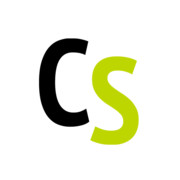Plone Conference 2010: Open Spaces and Lightning talks
plone.app.discussion
Timo Stollenwerk presented his Google Summer of Code sponsored work on plone.app.discussion the new discussion framework for Plone, that are proposing to get included in an upcoming version of Plone. Currently, if you want to use it, you have to extend your buildout with this versions file: http://good-py.appspot.com/release/plone.app.discussion/1.0b11
The open discussion included references to Disqus a free discussion platform (usable in Plone through collective.discuss), and some other things that I didn't catch because I was answering e-mails...
Diazo (former xdv)
Martin Aspeli showed us how Diazo is correctly pronounced and later on there was an open discussion about the missing things to adopt easily this product. Among them, people asked better installation story, to solve problems with Mac installation (lxml compilation story) Steve McMahon proposed to include lxml into the installer, people asked screencasts to learn the use of the product, someone also pointed Banjo (a product to get Diazo compatible rules file using a WYSIWYG interface). We also need working examples to encourage people to use Diazo.
New multilingual story in Plone
Ramon and Victor from UPCNet organized this OpenSpace to talk about the multilingual story in Plone when using Dexterity and the future of LinguaPlone. Unfortunately neither Martin Aspeli nor Hanno Schilichting attended the OpenSpace (which would have been a very interesting thing), so Ramon and Victor explained their work on plone.multilingual and plone.app.multilingual and also in some other products to add behaviours to Dexterity based content types. They explained that they are in a situation of deciding what to do: touch LinguaPlone or rewrite it completely to be Dexterity-aware. They are planning to organize a Sprint in Barcelona to solve this problems and finish the implementation
During the Open Space many interesting questions arose, such as the status of LinguaPlone, the flexibility a tool like this needs and many others.
Ramon and Victor noted the e-mail addresses of all attendees and will create a mailing list to discuss these things.
Lightning talks
And the conference ended with a session of lightning talks!!
web-and-mobile
Mikko Ohtama presented the release of web-and-mobile, his product to add a mobile view for Plone sites.
Plone AMI
Nate Aune presented the Plone 4 AMI for Amazon EC2. For the moment they only have US based images, but if anyone is interested they will prepare Europe based ones.
plone.openid
Kai Lautaportti explained how you can use OpenId identification in Plone to get extra information such as name or e-mail and how can you set open id servers' black- and white-lists.
ultra-uber-buidout
I invented the name but a public svn repository was presented with many documentation using buildout, buildout template examples, HAProxy documentation and many more. Check it here: https://svn.webmeisterei.com/repos/public/buildout-template/trunk
plone.app.search
Denis Mishunov presented his work on plone.app.search and how can it improve the search results page adding some new widgets, new style and some javascript. They will add plone.app.search in a future release.
EESTEC on Plone
EESTEC is the Electrical Engineering Students' European Association, and explained their work on Plone and organizing the Sauna Sprint in Helsinki this year. Next month they will be organizing the Neoplanta sprint in Novi Sad (Serbia)
High Performance Plone Hardware
Martin Aspeli showed an example of a high performance Plone setup with many Plone instances, Relstorage, Baker for sessions, Postgres, HAProxy and Varnish. I totally counted 4 machines and a hardware load balancer. 2 machines with Varnish and ngnix, and another 2 with 18 zopes (16 for read and 2 exclusives for writes), HAProxy, memcached and Postgres. Uff!
vimpdb
Godefroi Chapelle showed the use of vimpdb, that allows you to follow the call trace inside vi. Useless for a emacs user like me :)
SSO with IIS
Laurence Rowe showed how you can get logged in a Plone site on Windows just clicking the login link, using the authentication facilities of IIS and Windows.
deform
Patrick Gerken from Syslab showed yet another form framework.
And that's all for the Conference this year. During the weekend many people will be sprinting on a variety of topics. You can follow the results here: http://coactivate.org/projects/ploneconf2010-sprints/project-home
Best wishes for everyone from London and thank you to Matt and all Netsight team for the Conference!
You may be interested in these other articles
Plone Foundation New Members
Oct 14, 2025
CodeSyntax at PLONECONF 2025: Jyväskylä - Finland
Sep 12, 2025
Beethoven Sprint 2025
Jun 20, 2025



